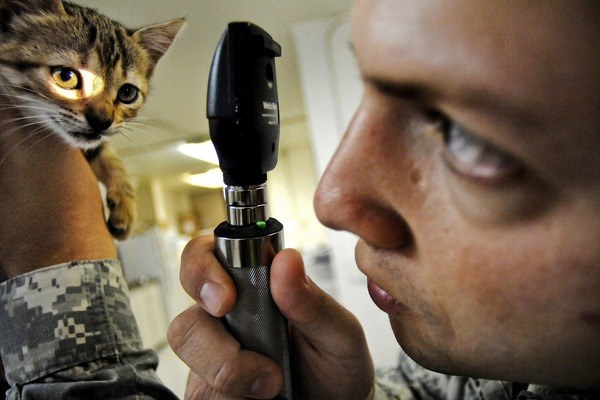
The automation revolution is coming for lots of jobs, especially in manufacturing, retail, and number-crunching.
Computers are nearly faultlessly organized and can handle complex computations in seconds. They never get tired, take a vacation, or require a paycheck.
However, what computers can’t do (at least not yet) is think creatively and make the kind of intuitive leaps that breed innovation.
They can’t console or comfort, and they struggle to predict human behavior. So some jobs will always be robot-proof, at least, until the uprising.
1. Writers and Authors: 3.8% chance of automation

It is true that some writing is already undertaken by computers. The AP, for example, has used automation for a few years already to produce numbers-based articles.
More items like TV listings and stock market figures will probably rely on computers as time marches on.
But since computers don’t understand emotion, they aren’t able to write the kinds of things that move and inspire people. It would be a sad world without those kinds of stories.
2. Veterinarians: 3.8% chance of automation

Even though we understand a lot about animal behavior and maintain an encyclopaedic record of animal diseases and medications, what any given animal will do in the moment is pretty unpredictable, so a robot would have trouble adjusting when things didn’t go as planned.
Veterinarians also need to have a deep connection to animals in order to be successful, something that robots can’t have.
3. Registered nurses: 0.9% chance of automation
For one, robots aren’t the best at caretaking and comforting, because it involves listening to the patient and offering them what they need to feel better.
Sometimes that is simply reassurance, something that robots don’t have much use for. Plus, as organized as they are, robots are not very good and multi-tasking and changing courses in the middle of a process. Nurses have to be able to do that on an hourly basis.
4. Clergymen/women: 0.8% chance of automation
Religion is not something that is based in reason or that has provable tenets. It is guided by faith. It is something felt deep inside a person.
Robots or computers may very well help in the mundane tasks involved in operating a physical church, but they simply can’t guide or inspire a congregation.
Nor can they assure anyone of forgiveness based on personal repentance; computers just don’t get that nuance, or care a whit about human rules for behavior.
5. Anthropologist and archaeologists: 0.8% chance of automation

Anthropology and archaeology are fields that take incomplete data and attempt to extrapolate reasonable conclusions about what happened in the past.
They are studies dedicated to advancing our understanding of humankind, so clearly robots aren’t fit for the job. All they know about humans is what we tell them, and they are not capable of formulating creative theories.
Computers are, however, extremely good at modeling, allowing researchers to scan in images of incomplete objects and get back likely depictions of the whole.
They are also able to go into dangerous areas and make important finds, they just can’t interpret them.
6. Speech language pathologists: 0.6% chance of automation
The issue robots face in the speech pathology field is that the causes of speech problems are quite diverse. They can be related to either a physical or emotional issue, or even both.
Each patient needs a highly customized program of therapy, which is something that robots will struggle to quantify. Computers are also unable to recognize when a person is getting tired or frustrated and modify the pace in response.
Robots are actually being used in speech therapy, but only in conjunction with a human therapist.
7. Curators: 0.7% chance of automation
There is no right or wrong when it comes to art. Even some of the most famous artists of all time have their detractors, people who simply hate their creations.
Curators rely on their understanding of the cultural zeitgeist to put together shows and collections that will appeal to a wide array of people, but there is little rhyme or reason to what makes a piece of art popular.
No algorithm is likely to get it right, and therefore, robots make lousy curators.
8. Teachers and Professors: 0.4% chance of automation

Teachers have the very challenging job of reaching 20-30 unpredictable immature humans on a daily basis, young people who all have different abilities, ways of learning, and complicating factors in their home lives.
It’s too much for a robot to predict the behavior of humans, and as poor multi-taskers, they aren’t able to deliver information differently to individual students.
They also lack the ability to effectively encourage students in their learning, a key piece of the job.
9. Choreographers: 0.4% chance of automation
Dance is a form of art that is not data driven. It is about feeling the music and having an emotional response to a story told though movement.
Robots aren’t capable of determining what makes a good dance presentation, especially because dance is most compelling when it injects some newness or novelty into established steps.
Creative leaps aren’t a robot’s strong suit. It is far easier to teach robots to dance than to design a dance.
10. Psychiatrists, psychologists, and therapists: 0.4% chance of automation
Mental health is an extremely complex issue that even humans struggle to understand. Sometimes mental health work is like shooting in the dark, just hoping to hit a target that brings some relief to the person suffering.
Some people also have extremely complex diagnoses that involve multiple conditions. And the work requires empathy above all in order to connect with the patient.
Though robots are being used in a limited capacity to gather data about a human’s condition, they won’t ever be a complete replacement.
As you can tell, the jobs that are safe from robots are those that deal with human emotion and animal behavior. These are things that can’t be broken down into numbers.
There is no reliable way to get consistent results in response to stimuli. In fact, the more often living creatures are exposed to a particular thing, the less likely they are to be inspired or moved by it.
We crave novelty. Therefore, creative leaps in thought and the development of critical relationships between us will always be best left to humans.
